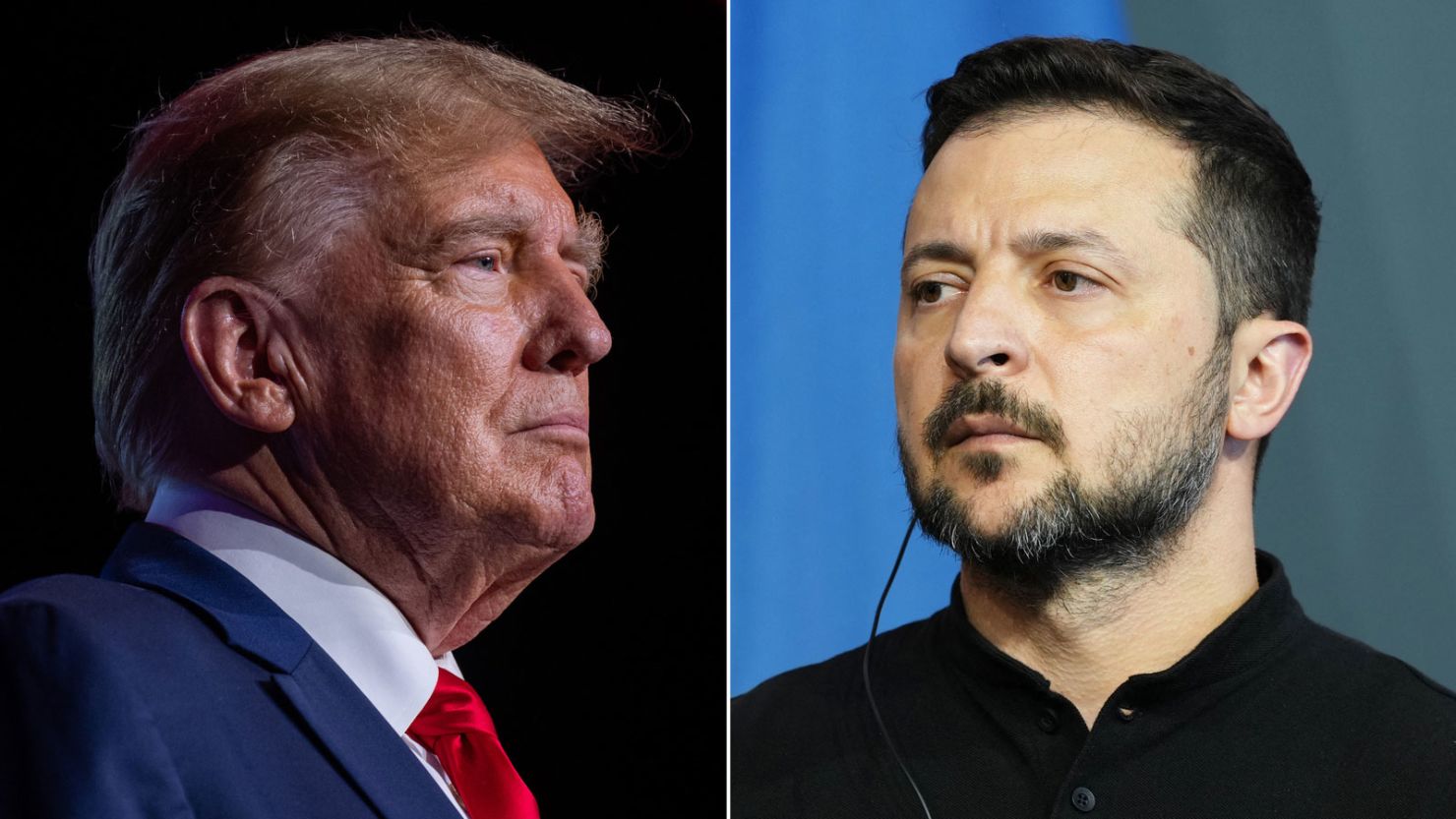Analyzing The Polish Election Runoff: Implications For MAGA-Style Politics Across Europe

Table of Contents
The recent Polish presidential election runoff has sent shockwaves across the political spectrum, offering crucial insights into the rise and potential spread of populist, nationalist movements echoing the "MAGA" style of politics seen in the United States. This analysis delves into the key takeaways from the election, exploring their potential implications for similar political trends across Europe. We'll examine the strategies employed, the demographics engaged, and the broader consequences for the European political landscape. The results hold significant lessons for understanding the evolving nature of European populism and its potential impact on democratic processes.
The Polish Election Runoff: A Case Study in Populist Success
The 2020 Polish presidential election runoff saw the incumbent, Andrzej Duda, secure a victory against his challenger, Rafał Trzaskowski. Voter turnout was high, indicating a deeply engaged electorate. Significant demographic shifts were observed, with strong support for Duda in rural areas and among older voters. This victory represents a significant win for populist, conservative politics in Poland.
-
Winning candidate's key policy promises: Duda's platform focused heavily on traditional family values, a strong national identity, and a critical stance towards immigration and the European Union. Economic nationalism and promises of social welfare programs also featured prominently. His campaign effectively tapped into anxieties about globalization and immigration.
-
Losing candidate's platform and areas of weakness: Trzaskowski, representing a more liberal and pro-EU stance, struggled to counter Duda's effective messaging on social and cultural issues. His campaign was perceived by some as less focused and less capable of mobilizing voters on an emotional level.
-
Analysis of specific policy areas that resonated with voters: Economic anxieties, particularly in rural areas, played a significant role. Duda's promises of economic support and his rhetoric on protecting traditional Polish values resonated deeply with a large segment of the population. The cultural identity issue, particularly concerning LGBTQ+ rights, proved to be a powerful mobilizing factor for Duda’s supporters.
-
Mention of any significant electoral irregularities or controversies: While the election was largely considered free and fair, there were some accusations of irregularities and biased media coverage, which fueled further political polarization.
Key Similarities to MAGA-Style Politics: Analyzing Shared Tactics and Rhetoric
The Polish election showcased striking similarities to the strategies employed by the American MAGA movement. Both campaigns utilized similar populist tactics and rhetorical strategies to resonate with their target audiences.
-
Use of populist language and appeals to nationalism: Both Duda and Trump successfully employed strong nationalistic rhetoric, emphasizing national pride and cultural identity. This resonated with voters concerned about immigration and globalization.
-
Targeted use of social media and disinformation campaigns: Both campaigns effectively leveraged social media platforms to spread their messages and counter opposing narratives. Disinformation campaigns played a notable role in shaping public opinion.
-
Exploitation of existing societal divisions and grievances: Both campaigns expertly exploited existing societal divisions, focusing on issues such as immigration, economic inequality, and cultural identity to mobilize support.
-
Focus on anti-establishment sentiment: Both Duda and Trump successfully framed themselves as outsiders challenging the established political order, tapping into widespread anti-establishment sentiment.
-
Examples of specific policy positions mirroring MAGA-style politics: Both campaigns advocated for stricter immigration policies, protectionist trade measures, and a more nationalistic foreign policy approach.
Implications for Other European Countries: The Spread of Populism
The Polish election's outcome has significant implications for other European nations grappling with similar political and social challenges. The success of Duda's populist strategy serves as a warning sign.
-
Identify countries with similar political and social contexts where MAGA-style politics might gain traction: Countries with significant economic inequality, strong anti-EU sentiment, and anxieties about immigration are particularly vulnerable. This includes countries in Eastern Europe and parts of Western Europe with rising nationalist movements.
-
Analyze potential vulnerabilities: Economic anxieties, immigration debates, and concerns about globalization create fertile ground for populist movements.
-
Discuss potential counter-strategies to combat the spread of such populism: Addressing economic inequality, fostering inclusive national narratives, and promoting media literacy are crucial steps in countering the spread of populism. Strengthening democratic institutions and tackling disinformation campaigns are also vital.
-
Mention specific political parties or movements in other European countries that exhibit similar characteristics: Several far-right and nationalist parties across Europe share similar characteristics with the Polish ruling party, Law and Justice (PiS), indicating a broader trend of rising populism.
The Role of Social Media and Disinformation in Shaping Public Opinion
Social media and disinformation campaigns played a crucial role in influencing the outcome of the Polish election. The spread of false and misleading information significantly impacted public discourse.
-
Examples of specific disinformation campaigns and their impact: Campaigns targeting the opposition, spreading false narratives about immigration, and manipulating public sentiment were prevalent.
-
Assessment of the effectiveness of fact-checking initiatives: While fact-checking efforts were made, their effectiveness in countering the spread of disinformation was limited due to the speed and reach of social media.
-
Discussion of the regulatory challenges posed by online disinformation: Regulating online content and combating disinformation present significant challenges for governments and social media companies.
-
Long-term effects of disinformation on democratic processes: The long-term effects of disinformation on democratic processes remain a significant concern, threatening informed public discourse and electoral integrity.
Conclusion: Understanding the Polish Election's Broader European Context
The Polish election runoff provides a valuable case study for understanding the rise of MAGA-style politics across Europe. The similarities in rhetoric, strategy, and the exploitation of societal anxieties highlight the potential for similar movements to gain traction in other countries. The role of social media and disinformation further complicates the challenge of countering these trends.
Call to Action: Further research into the strategies and implications of MAGA-style politics across Europe is crucial to understanding and mitigating their potential impact on democratic institutions and social cohesion. Analyzing the nuances of these movements in different national contexts is essential for developing effective counter-strategies and promoting robust democratic discourse. Continue to follow the unfolding developments in European politics and engage in informed discussions about the challenges posed by the rise of populism. Understanding the implications of this type of populist movement is critical for the future of European democracy.

Featured Posts
-
 Ulasan Kawasaki W800 My 2025 Desain Klasik Performa Andal Harga Terkini
May 30, 2025
Ulasan Kawasaki W800 My 2025 Desain Klasik Performa Andal Harga Terkini
May 30, 2025 -
 The Future Of Manila Bay Can Its Vibrancy Last
May 30, 2025
The Future Of Manila Bay Can Its Vibrancy Last
May 30, 2025 -
 London Welcomes Gorillaz For 25th Anniversary Celebration
May 30, 2025
London Welcomes Gorillaz For 25th Anniversary Celebration
May 30, 2025 -
 Uninvited Avenger Fan Favorite Missing From Mcus Future
May 30, 2025
Uninvited Avenger Fan Favorite Missing From Mcus Future
May 30, 2025 -
 Trump On Ukraine A Consistent Two Week Resolution Forecast
May 30, 2025
Trump On Ukraine A Consistent Two Week Resolution Forecast
May 30, 2025
